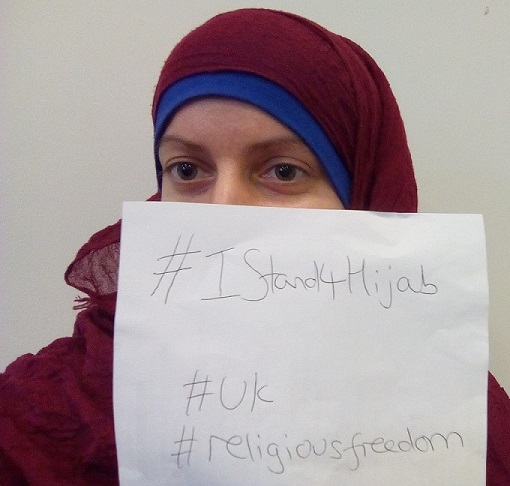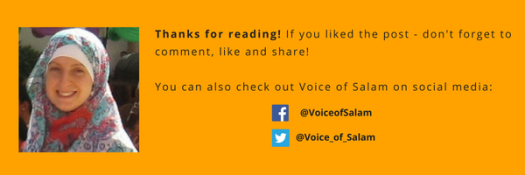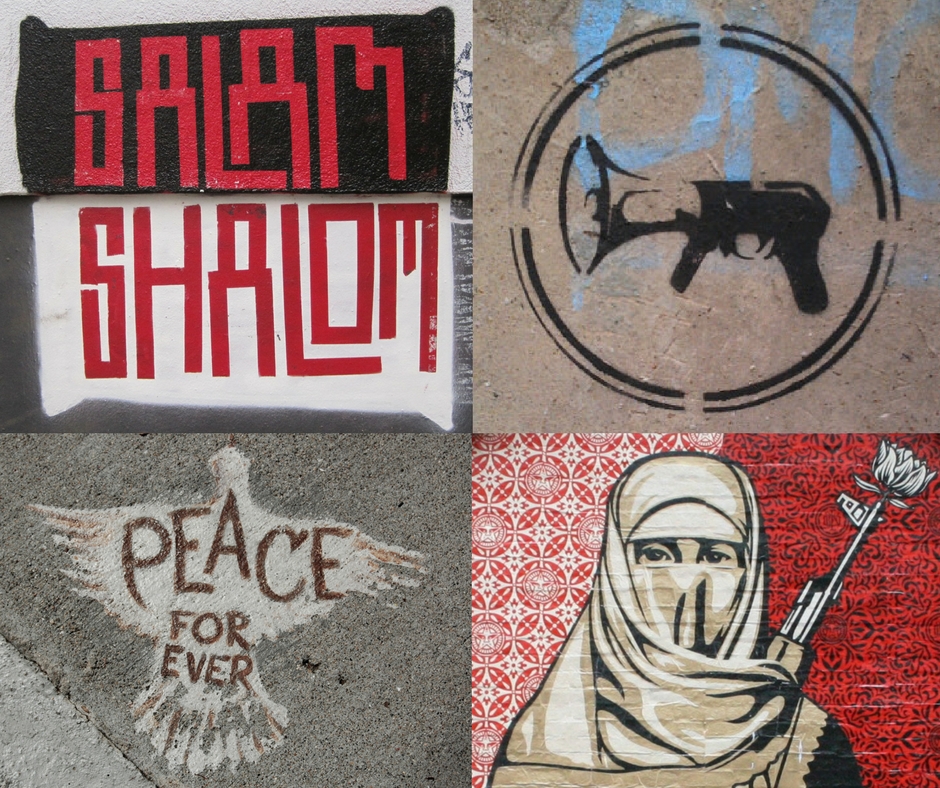Last month, in line with International Women’s Day, I attended the Nisa-Nashim conference in London. Nisa-Nashim (meaning “women” in both Arabic and Hebrew respectively) is a UK based organisation which aims to bring Muslim and Jewish women together to build bridges, found friendships and develop understanding between the two communities. We’ve got more in common than you’d think: we both come from the Abrahamic family of faiths, we share many values and practices and sadly, both Islamophobia and anti-Semitism – at least in visible terms – are on the rise worldwide including Europe and the USA.
However, this unfortunate trend appears to be bringing the two communities closer together. Back in February this year in the US, when thugs desecrated two Jewish cemeteries in Philadelphia and St. Louis, American Muslims raised over a staggering $140,000 to rebuild the graves. Likewise, when a mosque in Tampa (Florida) was attacked just day later, thanks to the support of Jewish donors, a massive total of $60,000 was raised to repair the damage. Gestures such as this go to show that we refuse to be divided by hate and that we actively challenge the narrative that “Jews and Muslims don’t get on” (due to predominantly Middle Eastern politics one would presume).
“Challenging the narrative” was exactly the theme of the Nisa-Nashim conference – a lovely day spent with lots of lovely Jewish and Muslim sisters (and one lovely gentleman)! We really are stronger together and we really do need to show that stereotypes, narratives and misconceptions must be challenged. During the day the question was posed: What narratives are you challenging? Other than by already being there, this made me think about what I am doing and what I can do – like all of us – to challenge people’s perceptions and to offer a different narrative. Here’s my list – what’s yours…?
******************
1. Islam and human rights are “incompatible”. Muslims hate “gay people”, agnostics, atheists, non-Muslims, Hindus, feminists, human rights campaigners etc.
I do not hate anyone. End of. God gave us all life and we must respect everyone – with no distinction in regards to ethnic background, nationality, race, religion or sexuality END OF. I myself am a human rights campaigner. I have a Master’s in Human Rights, I run a human rights blog and I’m a member of Amnesty International. I’m passionate about being active – online and offline – and I try and use my voice to speak out against injustice. This is my life, if I couldn’t do this well… there’d be trouble!
As a Muslim, Islam advocates feeding the poor, being just, honest, treating all humans (including women!) with respect, honour and dignity. Islam is serious about human rights. Unfortunately religious extremism, fear, sexism, tribalism, greed, intolerance, xenophobia etc. have all got in the way for many…
2. Muslims and Jews “don’t get on”
I’m Co-Chair of a local Jewish-Muslim women’s group in London as part of the Nisa-Nashim network. I respect and love my Jewish brothers and sisters. I may even have Jewish heritage (long story) and that is something I’m incredibly proud of. I’m forever saying how I’d like to make some Jewish friends! I – like many Muslim women – attended the Nisa-Nashim conference and are involved in its activities. The main hall was full of love! Since then I’ve been able to attend an interfaith Passover Seder and will continue to be involved in interfaith work. We’re sisters in the Abrahamic family and we’re sisters in humanity. And no: being Muslim does not equate to being anti-Semitic or a terrorist just as being Jewish does not equate to being a Zionist or Islamophobe.

3. Converts are suspicious, strange or wannabe extremists
There are Muslim converts, Jewish converts, Sikh converts (people I’ve met!) – it’s a fact of life. However we come to our new faith, we usually do so with love and enthusiasm – we’ve found something dear. Converts need to learn, they need support and they’re on a journey but hey – we’re normal!
4. You can’t be (truly) British and Muslim
British, Muslim and proud – that’s me. That’s also millions of British Muslims across the British Isles. My history and heritage is mine – it’s what got me here – and Britain accepts me as a Muslim, for who I am. Having spent time in other countries which are far less tolerant – I can tell you I’m proud to be British. Muslims who have spent their lives here, whose friends and family are here or have been offered a new life here – are happy being British too.
There’s no reason why you can’t be British and Muslim. Britain is a multicultural multifaith society and Islam teaches you to respect the law of the land and to be tolerant of others. For those who don’t like “living in a kaffir land” as they say – do they really feel British when they hold such beliefs?! Likewise for Islamophobes who worry about a “cultural clash” – we’re here and we’re happy. If we weren’t we’d go somewhere else! Look at the Muslims out there in politics, education, business, the charity sector, all over – we’re leading integrated, fulfilling and satisfying lives. And for those of you who aren’t convinced: we had an absolutely fabulous time at the British Islam 2017 conference back in February!

5. Today’s youth are apathetic and superficial
Not sure I quite fit into the youth category any more but here’s the point. We’re young, we’re passionate, we have a voice and we get out there. Going back to my previous points, like many young British men and women, I’m involved with groups. Just look at those standing up against Brexit related hate crime, xenophobia, Trump, Islamophobia, you name it. There’s millions of us focused on real issues.
6. Islam is Sunni or Shia
I’m Muslim. I’m not Sunni, Shia, Sufi, Deobandi, Ahmadi or anything. I am Muslim and Muslim alone. Having said that, there are billions of Muslims who identify under a particular sect or label. Those who label any other as non-Muslim perpetuate intolerant extremist beliefs. Ahmadis are Muslims, so are Sufis, Shias etc.
7. Muslim women cover themselves for men
I do not cover myself for my husband, my father, (male) Prophets or any person – male or female. I cover for Allah (swt) and Allah alone. As a Muslim, I believe that God is not human and has no gender. For more on this point, cick here.

8. Women convert to Islam to get married/for a man
I converted – like all the other converts I know – for faith and faith alone. I also converted before I got married. In Islam, Muslim men can marry Christian and Jewish women so there’s no need for such ladies. In any case, such conversion would be insincere and invalid. Without faith, you cannot be Muslim. Read more here.
9. Islam is an “Eastern religion” which oppresses women
Islam is a religion for the whole of humanity. I’m not from “the East”. There’s Muslims across the US, Canada, Latin America, the UK, France, North Africa – you name it (see point number four). Islam teaches that each land had their own Prophets. Muhammad and Jesus (pbut) were from the Middle East yes but there’s 1.6 billion Muslims worldwide.
Furthermore, there is no such thing as “East and West”. The “Clash of Civilisations” narrative is FALSE. There is the Western hemisphere, countries in the Eastern hemisphere etc. but we’re ONE world – a world that happens to be increasingly globalised. What’s more I’m me. I’m Muslim yes. I’m British yes. But I refuse to put put in a box. You’ll know who I am and what I’m like by talking to me, listening to me and getting to know me.
What’s more, I’m not oppressed. I’m an active feminist. In terms of women’s rights, Prophet Muhammad (pbuh) taught his followers to respect women. When the Qur’an was revealed women were treated as second class citizens with no rights. Islam gave women the right to own property, the right to divorce, a range of sexual, emotional and financial rights within marriage at a time when baby girls were being buried alive and women were sexually enslaved. Islam advocated for women’s education and social, emotional and spiritual wellbeing. It forbade forced marriage at a time when women could be married against their will – used and abused for the pleasure of men – teaching people to instead respect their wife, mother, daughter(s), sister(s) etc. Read more here and here.

10. A woman’s place is (solely) in the home
Women are the one’s who bear children, who go through pregnancy, who breastfeed and if a family can afford to have one salary – great, no reason why the lady can’t stay at home. There is no reason why a woman should be unhappy and unfulfilled staying at home.
However, woman also hold a valid place in society as a whole. We are half of the population. We cannot be completely cut off and shunned into the private sphere. Many women are mothers and carers whilst also holding a career at the same time or whilst being active in their community. Many women do not even have children. Women are doctors, teachers, educators, business women, politicians, writers, journalists, community workers, mentors etc. and as such we build (or aim to!) a more open, richer, more understanding world which represents the diversity of the population both in gender, nationality, ethnicity, culture and religion.
We cannot allow half of society to be misrepresented or even not represented at all. Society needs to serve everyone and therefore be built by both women and women. I like millions of Muslim women work full-time. I am active and I love it! For my sisters who are at home – great. Each to their own.
******************
So there we are, let me know your counter-narratives. I’d love to hear!
If you’d like to learn more, see also my previous post on the most common misconceptions of Muslim women. You might be surprised!
If you’d like more information about Nisa-Nashim, check them out online via their website and across social media: Twitter and Facebook.
Credits and acknowledgements:
Big thanks to all those who have inspired and supported me for who I am, who I aim to be and in everything I do.
Images: artgraff, Carnagenyc, Martha Heinemann Bixby, Straßenfotografie Hamburg (CC) (featured image). Image licences available to view via Flickr




I liked your post .
You are lucky to be in the UK. In France, Muslims are bad seen. I can testify of it, because I converted to Islam 2 years ago.
I write on human rights, too, and popular protests. My PhD was about the political discourses of popular protests during the French Revolution and the origins of human rights.
Unlike you, I am not veiled. But I also think that Islamophobia and Antisemitism go together : in France, the political campaign is focused on it.
LikeLiked by 1 person
Thanks sis. I have a degree in French and did my human rights thesis on the veil ban so I studied it a lot about French politics etc. before as well as after becoming a Muslim. I don’t think I could live in France long term. I really appreciated the UK’s attitude towards Muslims even more after living in Spain. Sadly yes, it’s part of the same evil. Prejudice knows no boundaries and I only hope that Jewish and Muslims communities will come close together in such times. If you’d like to share your experiences on the blog, I’d love to feature it 🙂 Thanks for reading! xx
LikeLike